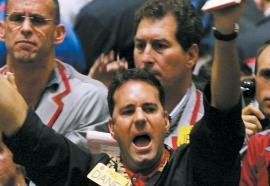Market Resurgence
Banks are reshaping the energy-trading landscape. When the dust settles, utility companies will face different strategic horizons.
Utility executives face volatile energy markets, skyrocketing fuel prices, and changing federal energy policies. How are utilities benefiting from the turnaround in energy trading?






